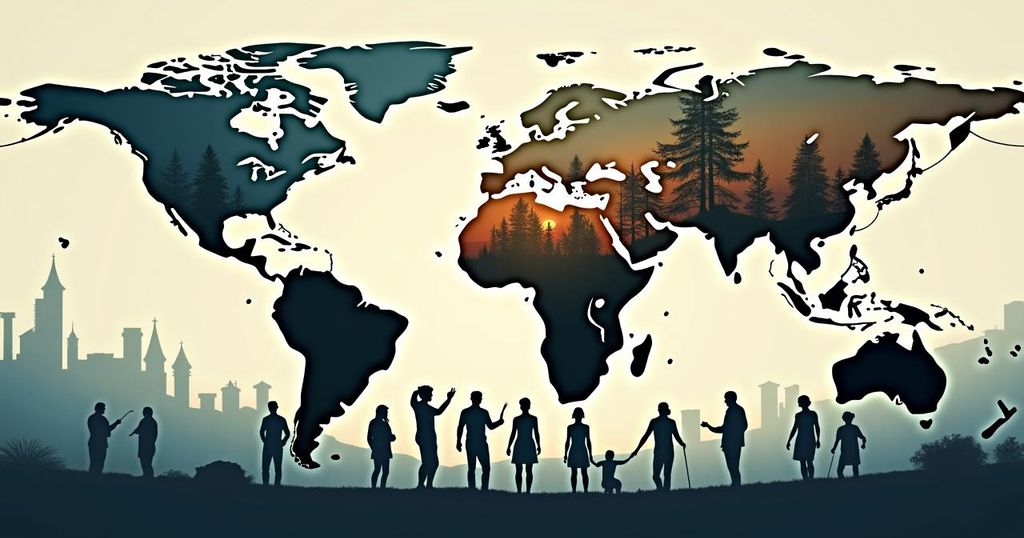Enhancing Regional Cooperation to Combat Climate Change: Insights from the COP Network Convention
Syeda Rizwana Hasan emphasized the need for enhanced regional cooperation to combat climate change during the Annual Community of Practice (COP) Network Convention. She highlighted the importance of sharing vital climate data between upstream and downstream countries and called for international efforts to secure funding for climate initiatives, particularly focusing on the role of women in climate resilience. The event marked the launch of the “Women’s Climate Action Network” and recognized female entrepreneurs’ contributions to combating climate change.
On Sunday, Syeda Rizwana Hasan, an adviser for Environment, Forest, and Climate Change, emphasized the imperative of bolstering regional collaboration to mitigate the adverse effects of climate change. Speaking at the Annual Community of Practice (COP) Network Convention, Ms. Hasan underscored the necessity of timely sharing information regarding rainfall, infrastructure status, and water resources between upstream and downstream countries. She articulated, “Both upstream and downstream countries must work together to this end.” This gathering was organized by the Manusher Jonno Foundation under the project titled “Empower: Women for Climate Resilient Societies” at the BRAC Centre Inn in Dhaka. Ms. Hasan also mentioned ongoing government initiatives aimed at preventing food insecurity during natural disasters. She advocated for global collaboration to attain zero carbon emissions and highlighted the importance of securing funding from loss and damage funds. Moreover, she noted that women disproportionately bear the brunt of climate change, assuring that their participation would be integral to the National Adaptation Plan. The event was presided over by Shaheen Anam, Executive Director of the Manusher Jonno Foundation, and included remarks from Maria Stridsman, Head of Development Cooperation at the Embassy of Sweden in Bangladesh, and Gitanjali Singh, Country Representative for UN Women. During the convention, the “Women’s Climate Action Network” was inaugurated, and five female entrepreneurs were recognized with the “Women’s Role in Combating Climate Change Award 2024.” Participants engaged in discussions surrounding strategies to enhance women’s involvement and leadership in both climate adaptation and mitigation efforts, featuring various panel discussions, workshops, and presentations on women’s empowerment, climate resilience, and gender equality.
The discussion on climate change has become increasingly critical due to its pervasive effects on global ecosystems and human livelihoods. Women, particularly in developing regions, are at a heightened risk, facing unique challenges that exacerbate their vulnerability to environmental changes. This context underscores the urgent need for collaborative efforts among governments, NGOs, and international bodies to address these complexities, especially concerning women’s roles in climate resilience and adaptation strategies. Events like the Annual Community of Practice (COP) Network Convention play a pivotal role in advocating for actionable policies and community engagement, particularly to support women as leaders and active participants in climate action.
In conclusion, regional cooperation is essential for successfully addressing the challenges posed by climate change. Strategic collaboration between upstream and downstream nations can enhance preparedness for climate impacts, while empowering women to take leadership roles is crucial in achieving meaningful adaptation strategies. The ongoing initiatives indicated by the government and organizations like Manusher Jonno Foundation highlight a commitment to addressing climate vulnerabilities and pursuing sustainable development goals, with a particular focus on equitable gender participation in climate action.
Original Source: businesspostbd.com




Post Comment